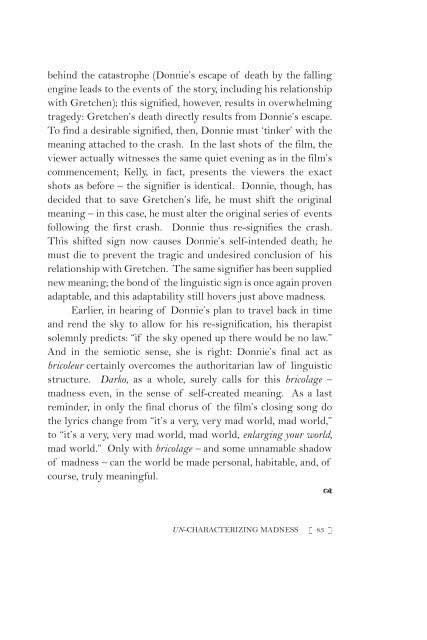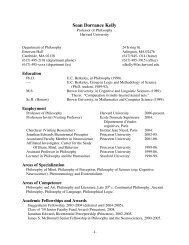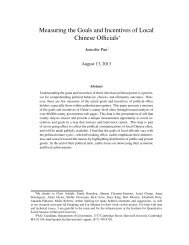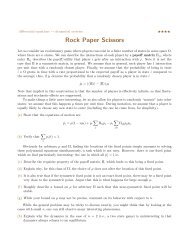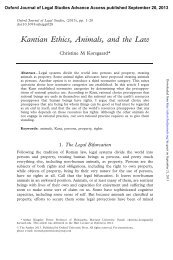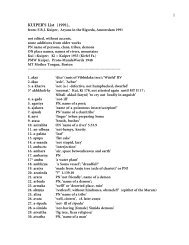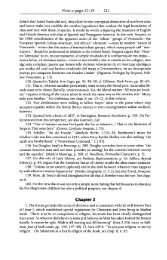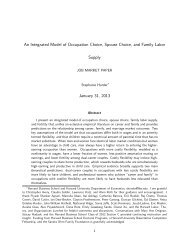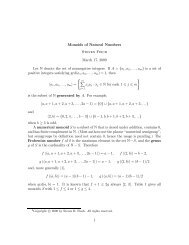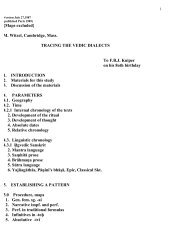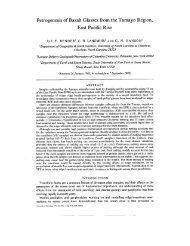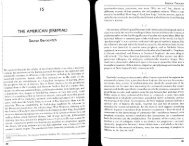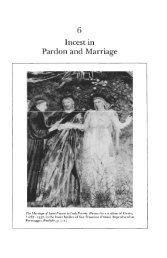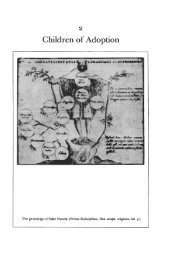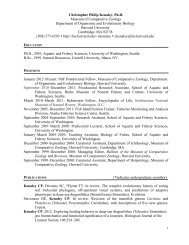Un-Characterizing Madness The Semiotic Revolution of Donnie Darko
Un-Characterizing Madness The Semiotic Revolution of Donnie Darko
Un-Characterizing Madness The Semiotic Revolution of Donnie Darko
Create successful ePaper yourself
Turn your PDF publications into a flip-book with our unique Google optimized e-Paper software.
ehind the catastrophe (<strong>Donnie</strong>’s escape <strong>of</strong> death by the falling<br />
engine leads to the events <strong>of</strong> the story, including his relationship<br />
with Gretchen); this signified, however, results in overwhelming<br />
tragedy: Gretchen’s death directly results from <strong>Donnie</strong>’s escape.<br />
To find a desirable signified, then, <strong>Donnie</strong> must ‘tinker’ with the<br />
meaning attached to the crash. In the last shots <strong>of</strong> the film, the<br />
viewer actually witnesses the same quiet evening as in the film’s<br />
commencement; Kelly, in fact, presents the viewers the exact<br />
shots as before – the signifier is identical. <strong>Donnie</strong>, though, has<br />
decided that to save Gretchen’s life, he must shift the original<br />
meaning – in this case, he must alter the original series <strong>of</strong> events<br />
following the first crash. <strong>Donnie</strong> thus re-signifies the crash.<br />
This shifted sign now causes <strong>Donnie</strong>’s self-intended death; he<br />
must die to prevent the tragic and undesired conclusion <strong>of</strong> his<br />
relationship with Gretchen. <strong>The</strong> same signifier has been supplied<br />
new meaning; the bond <strong>of</strong> the linguistic sign is once again proven<br />
adaptable, and this adaptability still hovers just above madness.<br />
Earlier, in hearing <strong>of</strong> <strong>Donnie</strong>’s plan to travel back in time<br />
and rend the sky to allow for his re-signification, his therapist<br />
solemnly predicts: “if the sky opened up there would be no law.”<br />
And in the semiotic sense, she is right: <strong>Donnie</strong>’s final act as<br />
bricoleur certainly overcomes the authoritarian law <strong>of</strong> linguistic<br />
structure. <strong>Darko</strong>, as a whole, surely calls for this bricolage –<br />
madness even, in the sense <strong>of</strong> self-created meaning. As a last<br />
reminder, in only the final chorus <strong>of</strong> the film’s closing song do<br />
the lyrics change from “it’s a very, very mad world, mad world,”<br />
to “it’s a very, very mad world, mad world, enlarging your world,<br />
mad world.” Only with bricolage – and some unnamable shadow<br />
<strong>of</strong> madness – can the world be made personal, habitable, and, <strong>of</strong><br />
course, truly meaningful.<br />
d<br />
UN-CHARACTERIZING MADNESS [ 83 ]


